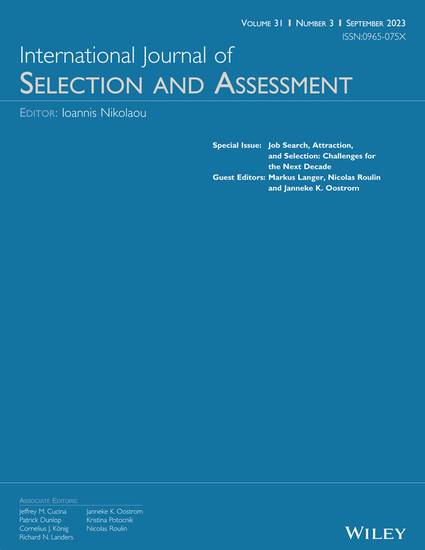
Article
Should we extend the currency of cognitive ability test scores? Considerations from construct, equity, and psychometric perspectives in medical selection
International Journal of Selection and Assessment
(2023)
Abstract
Scores on cognitive ability tests used in tertiary admissions contexts generally have very limited currency. This can have significant implications for prospective applicants to high-demand courses which use cognitive tests as part of the selection process. In this paper we present both psychometric and non-psychometric considerations regarding the score currency of ability tests, using GAMSAT (Graduate Medical School Admissions Test) as an example. We found that GAMSAT scores showed sufficient stability at the cohort level for institutions to be reasonably confident that a test score would continue to provide a valid representation of cognitive ability for up to a 5-year period. However, candidates’ pre-test preparation will influence whether it is in their interest to re-sit a test even within an extended currency period.
Keywords
- cognitive ability tests,
- medical selection,
- psychometrics,
- GAMSAT,
- equity,
- practice effects,
- score currency,
- test resits,
- widening participation
Disciplines
Publication Date
September 13, 2023
DOI
https://doi.org/10.1111/ijsa.12453
Citation Information
Chiavaroli, N., Le, L., Parker-Newlyn, L., & Pywell, S. (2023). Should we extend the currency of cognitive ability test scores? Considerations from construct, equity, and psychometric perspectives in medical selection. International Journal of Selection and Assessment, 1–11. https://doi.org/10.1111/ijsa.12453
